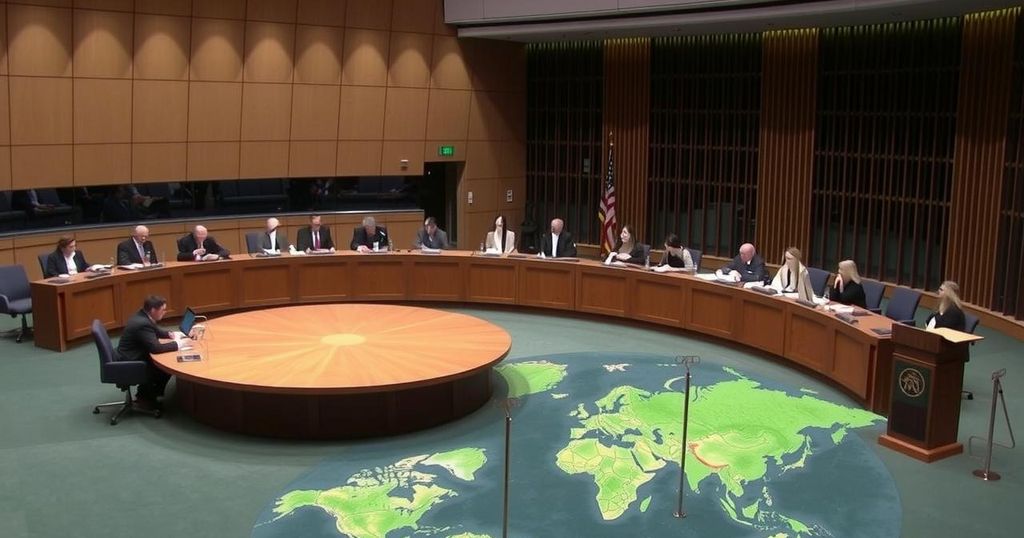A significant climate case commenced at the International Court of Justice, examining the legal expectations for nations to combat climate change, driven primarily by island nations facing existential threats from rising sea levels. With support from 99 countries, the case urges major polluters to take responsibility for emissions and provide aid to affected areas, potentially influencing international climate policy despite the non-binding nature of the court’s ruling.
The International Court of Justice in The Hague concluded the first week of hearings in a significant climate case, which acknowledges the legal obligations of nations in combating climate change. This case, driven by vulnerable island nations like Vanuatu facing existential threats from rising sea levels, aims to outline what countries must do to mitigate climate change impacts. Although the court’s decision is not legally binding, it is anticipated to influence international climate policies and the responsibilities of nations to assist those severely affected by climate change.
With representation from 99 countries, the proceedings have garnered unprecedented attention, particularly from nations most affected by climate change, such as Vanuatu, Chile, and the Philippines. These countries argue that major emitters, including the United States, China, and Russia, have a legal obligation to reduce their greenhouse gas emissions and provide financial support to mitigate climate-related damages. The court is tasked with considering both the legal requirements that countries hold under international law and the consequences of their inaction on global climate efforts.
The growing urgency for judicial intervention to address these issues reflects the plight of low-lying island nations where inhabitants witness their homes being submerged. Legal representatives from small island states have articulated the dire consequences of climate change on their communities. Given that the world has already warmed significantly due to carbon emissions, there is a growing call for accountability among leading polluters to enact substantial changes in their environmental policies. The hearings have underscored the disparity between minimal emissions from smaller nations and the disproportionate impact they experience from climate change.
In recent years, the adverse effects of climate change have disproportionately impacted vulnerable countries, especially small island nations like Vanuatu. These countries have increasingly advocated for international legal frameworks to address climate change and its repercussions on their territories. The International Court of Justice case aims to clarify the obligations of countries under international law to combat climate change and hold them accountable for inaction. This case represents a historic moment as it involves a large number of nations seeking legal recognition of their rights and responsibilities in the face of global warming.
The hearings at the International Court of Justice highlight a critical juncture in international climate accountability. While the verdict may not mandate immediate legislative change, it possesses the potential to reshape global climate policies profoundly. Through this case, vulnerable nations are pressing for a legally recognized standard of conduct regarding climate obligations, thus seeking justice and survival for their peoples against the backdrop of mounting environmental challenges.
Original Source: abcnews.go.com






